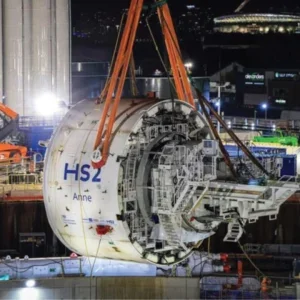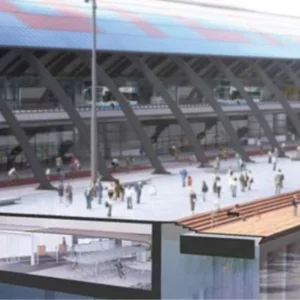The Bolivian Tunnelling Society, known as Abotunnel, is set to be re-launched. The body is to be a centre for technology under the guidance of technical director Gabriel Rodriguez, who will organise a number of committees to support tunnelling in the country.
Abotunnel is currently dependent on the support of the Bolivian Concrete Institute (BCI), and will be until it can operate by itself and secure its own funds, says Marcelo Alfaro, chairman of Abotunnel and general manager of the BCI.
“Abotunnel is currently operating from the BCI offices and we share the postal address of the institute. The secretary and technical experts are ready to work with us here.”
The perennial challenges of getting people engaged and and also raising funds are also the group’s. “Thus, we are going to plan technical activities, working group, courses, congresses to attract as many people as possible,” Alfaro says.
“We are currently awaiting the arrival of the first large TBM in the country and we are excited about that. It is for the Miguillas scheme, an on-going hydropower project in La Paz; it includes six tunnels with a total length of around 24.3km with sections of 8.74sq m and 11.50sq m.”
“The arrival of the TBM in Bolivia will be an important event for Abotunnel. We want to organise site visits to show how it works and its benefits so that people will be more aware of modern tunnelling techniques. The last time that the country used a TBM was more than 15 years ago. There have been no other large projects in the country since then. Throughout these years tunnels have been excavated with traditional methods, as they were quite small, for example the longest road tunnel was 1.2km.”
Miguillas
Miguillas is a scheme that includes two plants: the 116MW Palillada and 84MW Umapalca, which will be located in Bolivia’s La Paz region.
“The TBM will be manufactured and supplied by Herrenknecht [a 4.7m-diameter single shield TBM, convertible between closed EPB and open hard rock modes – Ed]. It was ordered by the previous constructor Corsan Corvian, who abandoned the project. Now the national company Ende is taking the responsibility to resume the works.
The new hydroelectric plants will use water from the water basins of the Miguillas, Jalancha, Carabuco, Choro and Khewani rivers, all of which are located in the Valle Miguillas, within the province of Inquisivi, in the North of the Nevado Tres Cruces.
This project requires dams and a network of tunnels more than 20km in length, and corresponding surge chambers and tanks, as well as around 3km of pressurised pipeline.
Bioceanic Railway
Another major project being considered by Bolivia is the Bioceanic rail route, which is to connect the port of Santos in Brazil to the port of Ilo in Peru passing through Bolivia. The project, which is in a feasibility study, will connect in Paraguay and Uruguay, with other rail connections so these two countries will be linked to the Port of Ilo on the Pacific coast.
The length of this project will be 3,700km with an estimated cost of USD 14bn. While the project is currently in planning stages, it is thought to be near to finalising an agreement between the countries to develop detailed final studies. Some 23km of tunnels will be required in Bolivia alone.
“Germany, the United Kingdom, Switzerland and Spain have all signed agreements with Bolivia for technical assessments and have shown interest in financing the project,” Alfaro says.
“Bolivia is a large country with low population density. Trains are not very efficient here and the main means of transport is by car, and so the government has decided to focus on road projects.
“We expect more activity in the tunnelling industry and we expect to see Abotunnel with a full agenda, such as conferences, technical courses, and site visits in the near future.”






